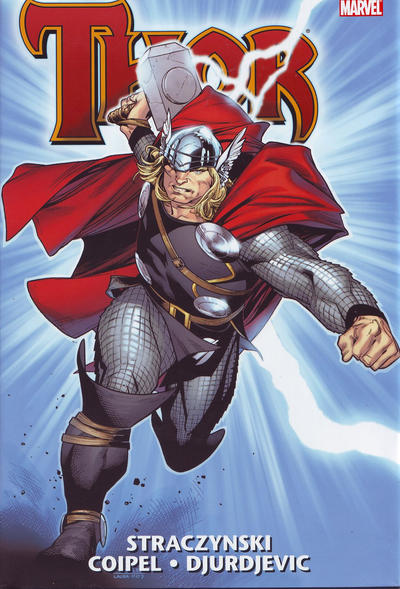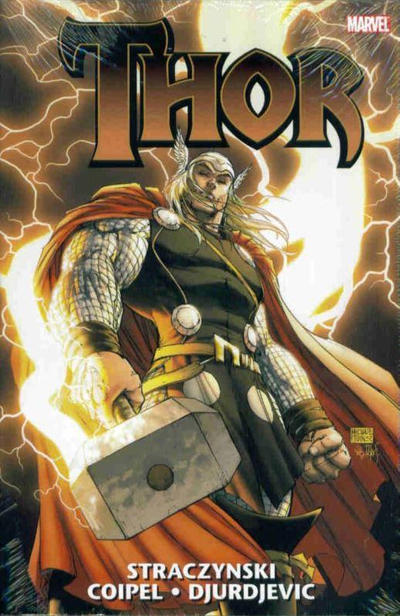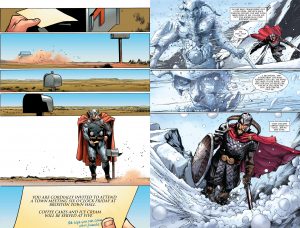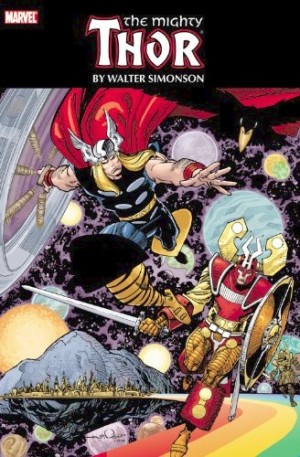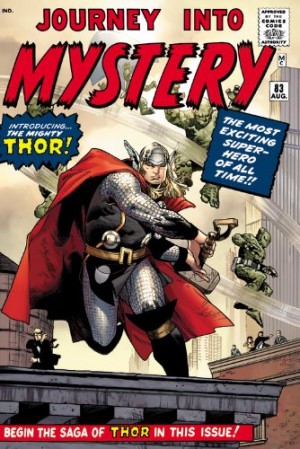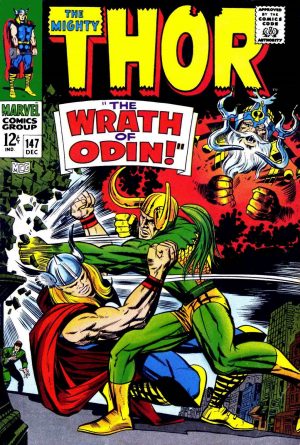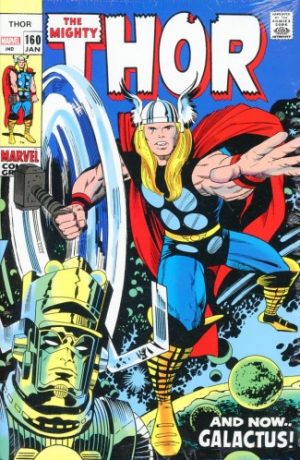Review by Ian Keogh
This is three-quarters of a very good book, the downfall ultimately being the leisurely pacing characterising J. Michael Straczynski’s plotting of Thor, eventually leading to a story in which much is unsatisfyingly unresolved by the final pages.
The good, however, is well worth the price of purchase. Straczynski inherits a dead Thor after Ragnarok has led to the fall of Asgard. He reconstitutes Thor in novel fashion, then sets about doing the same for other Asgardians and Asgard itself, now hovering above Oklahoma. This is achieved by involving real world problems without trivialising them or becoming heavy handed, and a great encounter with Iron Man. Before any of that there’s the two chapter preface of Thor’s hammer falling to Earth. It’s not essential reading, but a nice opening.
Once Asgard is again up and running, the material becomes very much an ensemble piece, with other Asgardians taking their turn in the spotlight, most prominently Balder and Loki, both used to extremely good effect. By the conclusion Thor’s absence is to the detriment of the plot, but until that point the diversions are very good indeed. The best of them concerns Loki, brilliantly characterised by Straczynski as sowing dissent and other negative emotions with the merest suggestion, yet carried out in such a manner that even those knowing of the characteristic deceit fall prey to manipulation. The form of Loki’s return is surprising, and an excellent chapter shows the arrangement of events that have long-reaching effects. It’s indicative of the care with which Straczynski arranges his plots, and they all fall brilliantly into place with a stunning episode in which Thor faces a force equal to his own.
All the smart writing in the world would achieve little without the artist able to visualise the plots, and this incarnation of Thor has two greats. Olivier Coipel opens the series, providing power and grace, looking far better when inked by Mark Morales than others. Marko Djurdjević’s pages are far busier, occasionally to the extent of drawing the eye away from where it should rest, but he’s also extremely good, bringing the Asgardians to life in a more visceral fashion. He loses some effect late on when inked by Danny Miki, but both artists impress throughout and these oversized pages present their art to great effect.
Having worked his way to the magnificent battle chapter, all the steam runs out of Straczynski’s plots. Good ideas come to nothing, the leisurely pace leads to an unresolved story, comedy moments fall flat and Thor’s absence really hurts. The best of it is sequences that have always worked well in Thor, the contrast between the lives of the Gods and the lives of mortals. These closing episodes are such a drastic plummet down the quality scale that they’ll prompt speculation about whether other factors were involved, and conflicting explanations are easily found online. Still, as noted at the start, three-quarters of the content is excellent, making the book a worthy addition to your shelves, and the material over the opening nine episodes won an Eagle Award for best new series.
If you just want the good stuff and are unconcerned about the larger page format, you might be better off buying the paperback versions. Thor by J. Michael Straczynski vols one and two. More specific reviews of the content are found via the links. Volume three is also available.
